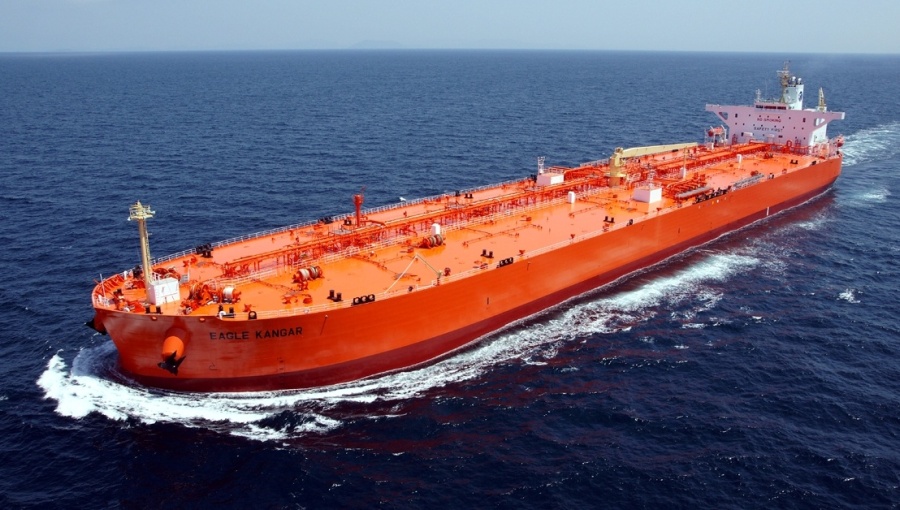Iran overestimating oil sales leads to $8bn budget deficit

Iran has been ramping up its oil production and exports this year, but it has overestimated the volume and value of sales, leading to an $8bn hole in its budget.
According to the head of the Budget and Plan Organisation of Iran (PBO) Davoud Manzour, 30% of the budgetary resources for the initial seven months of the current Persian calendar year (March 21-October 22) did not arrive, in part because of overestimation of expectations from oil revenues.
“Oil revenues were projected to reach IRR6,200 trillion ($12.4bn) in the budget, assuming that oil would be sold at $80 per barrel and at a rate of 1.5mn barrels [per day]. However, in many months of the year, the selling price and the export volume have been lower,” Manzour was quoted as saying.
The PBO is one of the largest governmental establishments in Iran tasked with evaluating the country's resources, preparing medium and long-term development plans and policies, drafting annual budgets, and monitoring and assessing the work done under the implemented plans.
The current fiscal budget in Iran stipulates IRR22,630 trillion ($45.26bn) in revenues throughout the year that ends on March 19, 2024. Therefore, the seven-month target was around $26.4bn, which means, according to the PBO chief, a shortfall of revenue has created a $8bn deficit in the budget so far this year.
Manzour also attributed the shortfall to overestimation in the income generated from the “transfer of surplus assets”, a budgetary provision allowing the government to fund its budget through selling its unnecessary assets, mainly property and land.
Iran’s oil output has been steadily on the rise since the beginning of 2023, climbing from 2.5mn barrels per day (bpd) in January to over 3mn bpd in September, according to OPEC.
Exports have also increased near levels seen before 2018, when former US President Donald Trump’s administration reimposed sanctions against Tehran’s crude exports. Meanwhile, Iran has been selling its crude at a discount to a limited number of customers who have defied sanctions.
China has been the leading destination of Iranian oil, with small shipments also going to Venezuela and Syria. Others are being sold to other buyers outside Singapore on ship-to-ship transfers.
The rising production came against the backdrop of eased enforcement of US sanctions as signs emerged of thawing relations between Tehran and Washington earlier this year, which culminated in a historic prisoner exchange between the two sides in September and the release of Iranian oil money worth $6bn previously frozen in South Korea.
However, the tides turned after Hamas attacked Israel on October 7. With the finger of blame on Iran for its long-running support of Hamas and open adversarial stance toward Israel, Washington rolled back its seemingly warming ties with Tehran.
Helima Croft, head of global commodity strategy at RBC Capital Markets, says US President Joe Biden’s administration will likely tighten crude oil sanctions against Iran in response to the Islamic Republic’s backing of Hamas, CNBC reported on October 25.
Earlier on October 23, Reuters reported that US senators from both parties were readying legislation to help the federal government introduce new oil sanctions on Iran.
The US has a history of seizure of two cargoes of Iranian oil since its enforcement program was activated in 2019. The latest seizure by the Justice Department in April was a cargo carried by the Suez Rajan tanker as Iran's Islamic Revolutionary Guard Corps (IRGC) had been trying to send nearly 1mn barrels of Iranian crude to China.
Meanwhile Iran still holds two foreign-flagged tankers, the NIOVI and ADVANTAGE SWEET, in its port of Bandar Abbas.
Under the circumstances, it may be unlikely that Iran will be able to keep up its uptrend in oil production amid risks of renewed sanctions and tanker seizures. This, in turn, means the reported budget deficit may be on its way to widening further, which would potentially spell a crisis for Iran’s already embattled economy.
And in terms of the broader implications of the evolving developments at global level, fresh restrictions on Iran’s oil sales could consequently lead to a rise in prices with a potential impact on investment portfolios worldwide.
"Portfolios that include energy sector assets can be directly affected by the sanctions on Iran's crude oil. Iran is a major oil producer, and restrictions on its exports can result in a reduction in global oil supply, which, in turn, could boost the profitability of energy companies,” said Nigel Green, the CEO of deVere Group, one of the world's largest independent financial advisory, to Korea IT Times on October 26.
“Developing economies are particularly vulnerable to oil price spikes. Many countries rely heavily on imported oil, and surging prices can strain their trade balances and currencies. As such, investors with heavy exposure to these markets must be extra cautious as risks are heightened.”


Follow us online